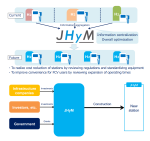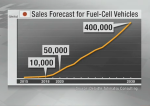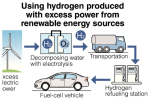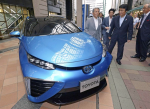
Toyoda Gosei Establishes New Plant in Japan to Produce High Pressure Hydrogen Tanks for FCVs
Date: March 14, 2018
Source: Toyoda Gosei Co., Ltd.
KIYOSU, Japan – Toyoda Gosei Co., Ltd. has established a new plant in the city of Inabe, Mie Prefecture, Japan to produce high pressure hydrogen tanks, a crucial component of fuel cell vehicles (FCVs). Preparations for the start of production are currently underway.
Continue reading »














